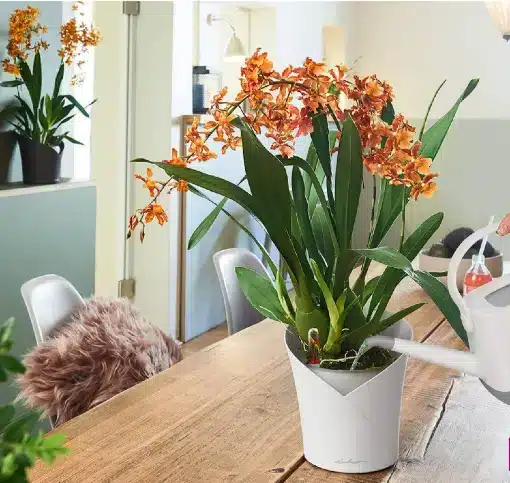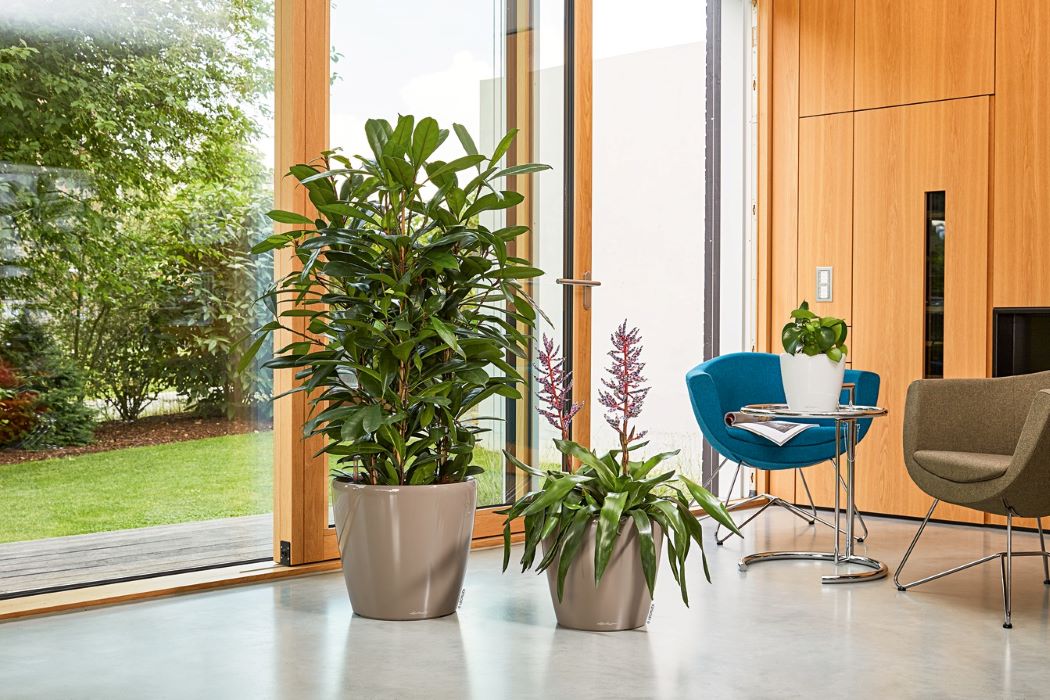Many more of us have been working from home lately and we have recognised the importance of improving our well-being and mental health whilst doing so. We are encouraged to take long walks and get outside with nature.
But the seasons are changing. The weather gets colder and wetter, making it harder to get out as often, so why not bring nature indoors?
There has been a lot of research into which plants can benefit us the most – famously the NASA Clean air study that looked at which houseplants could naturally help improve air quality by filtering out toxins. Many of these VOCs (volatile organic compounds) can cause eye and throat irritations and some are potentially carcinogenic. Many household items such as cleaning products, as well as manufactured wood, plastics and leather can contain these. With houses becoming more insulated, these gases get trapped and build up in the air. This has since triggered much research into the area.
Plants give an overall benefit to improve your mood, relieve stress and even improve your sleep quality. Caring for plants is a good mindfulness technique used in horticultural therapy – grounding you in the moment, calming you after a stressful or hectic day. Keeping your plants healthy and thriving can be challenging, but when successful, gives you a sense of accomplishment!

A few of the top houseplants to improve air quality are:
- Spider plants
One of the easiest houseplants to grow it can remove Nitrogen dioxide, Ethylbenzene, and Formaldehyde and reduce Carbon dioxide.
- English Ivy
A great plant to remove chemicals such as Formaldehyde, Benzene, Trichloroethylene and a variety of VOCs. It also has the ability to remove mould particles from the air. However, keep this one out of reach of dogs and children as it can be toxic and an irritant to the skin.
- Snake plants
Another easy to care for plant that looks fab. It is again good at removing Trichloroethylene, Formaldehyde, Toluene, Xylene to improve air quality. The bonus of this plant is that it will convert Carbon dioxide to Oxygen at night helping you get a more restful sleep.
- Pothos
This vine plant with heart-shaped leaves can tolerate quite low concentrations of light. Will remove Formaldehyde, Benzene and Toluene. It can also improve water quality if used in aquariums!
- Peace Lily
This is the Queen of the plants! It is not toxic and has the ability to improve air quality by reducing amounts of Ammonia, Benzene, Xylene, Formaldehyde, Carbon monoxide, as well as mould spores from the environment. It is easy to look after and has small white glossy flowers.
Our most popular plant pot to help make caring for plants easier is the Classico colour. It is available in 3 sizes in stylish white, slate grey and a neutral nutmeg brown. It will suit almost any houseplant of your choice. A reservoir located underneath allows the plant to take up as much water as it needs when it needs it. The special Lechuza PON substrate provided will keep the correct balance of soil and air around the plant roots. Check out our complete range of self-watering planters here for both indoors and out.
Regardless of the scientific benefits of having houseplants – they will simply look nice! So join us and get growing.

